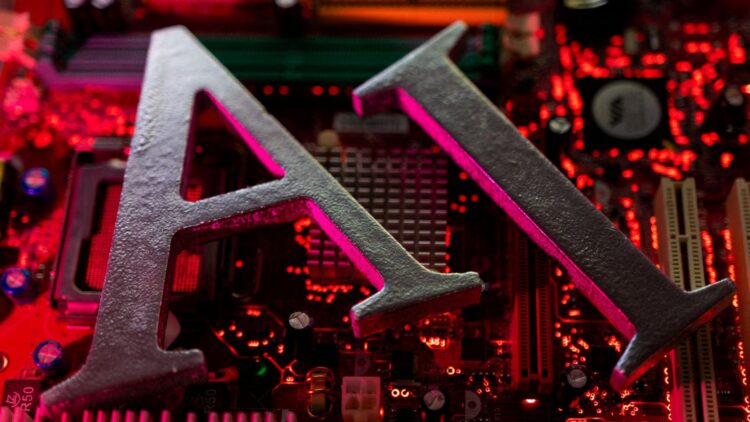This year, artificial intelligence has seen its popularity growth in the American country, bringing with it not only fascination but also apprehension regarding the future of the job market and the social stability of the population. This rapid technological advancement, combined with its already visible impact on various sectors of the global economy, has fueled intense debates about security, privacy, and the risk of an irreversible transformation in the job market.
The impact of AI on employment and society raises concerns
Americans are deeply concerned over the prospect that advances in artificial intelligence could put swaths of the country out of work permanently, according to a new Reuters/Ipsos poll. The six-day poll, which concluded on Monday, showed 71% of respondents said they were concerned that AI will be “putting too many people out of work permanently.”
The new technology burst into the national conversation in late 2022 when OpenAI’s ChatGPT chatbot launched and became the fastest-growing application of all time, with tech heavyweights like Facebook owner Meta Platforms META.O, Google owner Alphabet GOOGL.O and Microsoft MSFT.O offering their own AI products.
While at present there are few signs of mass unemployment – the U.S. jobless rate was just 4.2% in July – artificial intelligence is stirring concerns as it reshapes jobs, industries and day-to-day life. Some 77% of respondents to the Reuters/Ipsos poll said they worried the technology could be used to stir up political chaos, a sign of unease over the now-common use of AI technology to create realistic videos of imaginary events.
The debate surrounding artificial intelligence
President Donald Trump last month posted on social media an AI-generated video of former Democratic president Barack Obama being arrested, an event that never happened. Americans are also leery about military applications for AI, the Reuters/Ipsos poll showed. Some 48% of respondents said the government should never use AI to determine the target of a military strike, compared with 24% who said the government should allow that sort of use of the technology. Another 28% said they were not sure.
The general enthusiasm for AI shown by many people and companies has fueled further investments, such as Foxconn 2354.TW and SoftBank’s 9984.Tplanned data center equipment factory in Ohio. It has also upended national security policies as the United States and China vie for AI dominance. More than half of Americans – some 61% – said they were concerned about the amount of electricity needed to power the fast-growing technology.
Social challenges and risks in the advancement of AI
Google said earlier this month it had signed agreements with two U.S. electric utilities to reduce its AI data center power consumption during times of surging demand on the grid, as energy-intensive AI use outpaces power supplies. The new technology has also come under criticism for applications that have let AI bots hold romantic conversations with children, generate false medical information and help people make racist arguments.
These tech companies are believed to be trying to mitigate the effects of AI, as exemplified by Google, which has taken steps to reduce energy consumption in its data centers. While this is true, concerns remain about the speed at which these tools are being integrated into everyday life. This is particularly true because AI has been linked to massive energy consumption, controversial applications, and the difficulty of immediate regulation.
Innovation, distrust and uncertain future
Artificial intelligence is already a central theme on the United States’ political, economic, and social agenda. The country now needs to balance technological leadership with internal stability. This could happen through pressure for regulations that ensure transparency in AI use, as well as safety and limits on its use. This assertion could define not only the job market but also the US’s role in the global race for AI supremacy.
GCN.com/Reuters


